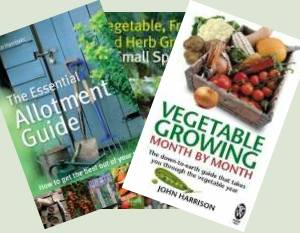How to Grow Basil – A Guide to Growing Basil
 Supermarkets may be the main supplier of Basil used in most peoples kitchens but I find that these small pots don’t last long. I find it difficult to keep them going for more than a week or two and they often already have whitefly present.
Supermarkets may be the main supplier of Basil used in most peoples kitchens but I find that these small pots don’t last long. I find it difficult to keep them going for more than a week or two and they often already have whitefly present.
The pots have several plants so splitting is possible and may extend its life . If, however, you are a fan of Basil like me it is far more economical to grow your own.
Although Basils are mainly grown as an annual you can get perennial varieties but as they are not hardy they would need protection against winter conditions.
Varieties of Basil
You can get an extensive range of Basil varieties with different scents and flavours. One of the best known is Basilico Genovese, this Italian type is known for a strong aromatic smell and flavour. Less traditional varieties have a cinnamon–clove taste.
If you are looking for a spicy Thai Basil – Siam Queen with its liquorice/aniseed scent and flavour is a good choice. Or try something different like Sweet Green , a variety with a hint of mint to its flavour.
Pests and Problems with Basil
Whitefly is a common problem. Sticky leaves are a sign of an infestation which if not too heavily infested can be treated by spraying them with a soapy water solution.
Growing Basil
Basil seeds can be sown indoors between late February and early May using a small pot. The seeds should be sown thinly, shallowly and at a temperature of around 20ºC. To have fresh plants throughout the season you can sow seeds in succession.
Basil seeds take a week or two to germinate.
Seedlings should be transplanted into 8cm (3in) pots once they are large enough to handle where they will grow and develop a good root ball. A light, rich but well drained soil is recommended for Basil plants.
Basil is best grown outdoors in a sheltered sunny spot, or indoors on a windowsill. Plants will not thrive in the cold and even a slight frost will kill it.
If you pinch out the growing tip of the main stem when the Basil is around 20cm (8 inches) tall it will encourage a bushier plant. This will also stop it from flowering and going to seed.
Basil makes a good companion plant for tomatoes.
Harvesting Basil
Pick the leaves as and when you need them for salads/cooking .
Eating and Storing Basil
Basil is a traditional accompaniment for dishes containing tomatoes, be that a cooked dish like Bolognese or raw to liven up any salad .
If you like cooking Thai curry this authentically contains Thai Basils .
Fresh pesto is so easy to make and can be frozen, fresh basil can also be frozen or dried.



